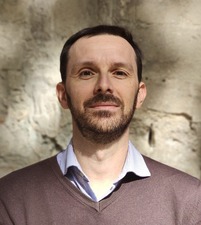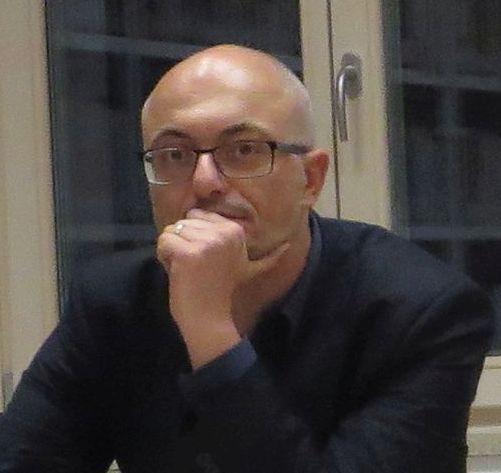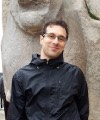Studying at the University of Verona
Here you can find information on the organisational aspects of the Programme, lecture timetables, learning activities and useful contact details for your time at the University, from enrolment to graduation.
Academic calendar
The academic calendar shows the deadlines and scheduled events that are relevant to students, teaching and technical-administrative staff of the University. Public holidays and University closures are also indicated. The academic year normally begins on 1 October each year and ends on 30 September of the following year.
Course calendar
The Academic Calendar sets out the degree programme lecture and exam timetables, as well as the relevant university closure dates..
| Period | From | To |
|---|---|---|
| 1° semestre lezioni Trento | Sep 18, 2023 | Dec 21, 2023 |
| CuCi 1 A | Sep 25, 2023 | Nov 4, 2023 |
| CuCi 1 B | Nov 13, 2023 | Dec 22, 2023 |
| CuCi 2 A | Feb 19, 2024 | Mar 29, 2024 |
| 2° semestre lezioni Trento | Feb 19, 2024 | May 31, 2024 |
| CuCi 2 B | Apr 9, 2024 | May 31, 2024 |
| Session | From | To |
|---|---|---|
| Sessione invernale | Jan 8, 2024 | Feb 17, 2024 |
| Sessione estiva | Jun 3, 2024 | Jul 26, 2024 |
| Sessione autunnale | Aug 26, 2024 | Sep 21, 2024 |
| Session | From | To |
|---|---|---|
| Sessione straordinaria (a.a. 2022/23) | Apr 2, 2024 | Apr 8, 2024 |
| Sessione estiva | Jul 8, 2024 | Jul 13, 2024 |
| Sessione autunnale | Nov 4, 2024 | Nov 9, 2024 |
| Period | From | To |
|---|---|---|
| Festa di Ognissanti | Nov 1, 2023 | Nov 1, 2023 |
| Festa dell'Immacolata | Dec 8, 2023 | Dec 8, 2023 |
| Vacanze di Natale | Dec 24, 2023 | Jan 7, 2024 |
| Vacanze di Pasqua | Mar 29, 2024 | Apr 1, 2024 |
| Festa della Liberazione | Apr 25, 2024 | Apr 25, 2024 |
| Festa del Lavoro | May 1, 2024 | May 1, 2024 |
| Festa del Santo Patrono | May 21, 2024 | May 21, 2024 |
| Vacanze estive | Aug 12, 2024 | Aug 17, 2024 |
Exam calendar
Exam dates and rounds are managed by the relevant Culture and Civilisation Teaching and Student Services Unit.
To view all the exam sessions available, please use the Exam dashboard on ESSE3.
If you forgot your login details or have problems logging in, please contact the relevant IT HelpDesk, or check the login details recovery web page.
Should you have any doubts or questions, please check the Enrollment FAQs
Academic staff
 giovanni.bernardini@univr.it
giovanni.bernardini@univr.it
 giovanni.ciappelli@univr.it
giovanni.ciappelli@univr.it
 giorgia.proietti@unitn.it
giorgia.proietti@unitn.it
Study Plan
The Study Plan includes all modules, teaching and learning activities that each student will need to undertake during their time at the University.
Please select your Study Plan based on your enrollment year.
1° Year
| Modules | Credits | TAF | SSD |
|---|
Contemporary History I - LM
History of Science and Technology - LM
Medieval History, History of Christianity and Churches
Early Modern History I - LM (Historical Anthropology)
History of Political Thought
History of Medieval Art (m)
Medieval Latin Literature II
Digital tools for historical research
2° Year It will be activated in the A.Y. 2024/2025
| Modules | Credits | TAF | SSD |
|---|
| Modules | Credits | TAF | SSD |
|---|
Contemporary History I - LM
History of Science and Technology - LM
Medieval History, History of Christianity and Churches
Early Modern History I - LM (Historical Anthropology)
History of Political Thought
History of Medieval Art (m)
Medieval Latin Literature II
Digital tools for historical research
| Modules | Credits | TAF | SSD |
|---|
| Modules | Credits | TAF | SSD |
|---|
Legend | Type of training activity (TTA)
TAF (Type of Educational Activity) All courses and activities are classified into different types of educational activities, indicated by a letter.
Contemporary History I - LM [Sede TN] (2023/2024)
Teaching code
4S001218
Teacher
Coordinator
Credits
6
Language
Italian
Scientific Disciplinary Sector (SSD)
M-STO/04 - CONTEMPORARY HISTORY
Period
2° semestre lezioni Trento dal Feb 19, 2024 al May 31, 2024.
Courses Single
Authorized
Learning objectives
Analysis and understanding of complex historical processes over time (including the analysis of shorter historical times in a long-term perspective) and in space (by linking the national history with the European and international ones), capturing the complexity and articulation of historical events, while being able to identify the most significant causal nodes.
Prerequisites and basic notions
basic knowledge of 20th-century history (after 1945)
Program
Jean Monnet Module (innovative teaching)
The course (a module of a total of 52 hours - 22 study visit with archival research) is organized as a research course – it will be taught mainly in Italian but with sources in several European languages (English, French, German). 1) Background lectures: reading the history of European integration: the historiographical debates; the History of European Integration through its leaders
2) Methodology classes: introduction to the sources to research on the history of European Integration: online collections, journals and official publications, archival sources (the Historical Archives of the European Union: documents in site and online sources) 3) Archive visit 4) The graduate conference: discussing the draft papers with senior scholars and peers.
Lectures: 1) Introduction – The History of European Integration as a sub-field; 2) Ideas of Europe: Democracy and the idea of European Unity at the Outset of the Cold War. Winston Churchill and the Council of Europe; 3) Ideas of Europe: Peace in Europe and European Construction as a Continental Project. The ECSC, Jean Monnet and Robert Schuman; 4) Ideas of Europe: Peace in Europe as a Transatlantic Project. The EDC and Alcide De Gasperi; 5) Ideas of Europe: Eurafrica. The birth of the EEC as a substitute for empire. Frome Coudenhove-Kalergi to Jacques Ferrandi; 6) A Social-Democratic Europe? Willy Brandt, Roy Jenkins, and Jacques Delors; 7) A Green Europe? Sicco Mansholt and Altiero Spinelli; 8) Europe, the Oil Crisis, and the Global South as a partner. Claude Cheysson; 9) Human Rights. The breakthrough of the 1970s and Simone Veil; 10) Female leadership and the European Union: Angela Merkel
Bibliography
Didactic methods
Classes are organised as seminars, with students who must read in advance and discuss the reading. The archival research part is followed by tutoring on preparing the final paper. Students will present the results of their research at a graduate conference, i.e. a round table in which they receive comments on their draft paper from a classmate and a professor associated with the course. The comments will then be incorporated into the final paper.
Learning assessment procedures
the evaluation takes place on the participation in the seminar (20%), on the research and on the presentation of the research results (40%), on the final paper (40%).
Students enrolled in the single course may attend as attending; in case of non-attendance, the rules described below apply.
Non-attending students will be required to take a short written exam on the required readings and develop a term paper on original archival documents available online. They will be followed with specific online tutoring.
Evaluation criteria
ability to develop a coherent and persuasive argument; oral presentation; argumentative care and formal correctness (expression, bibliographic and archival references) of the final thesis.
Criteria for the composition of the final grade
participation in the seminar (20%), research and presentation of the research results (40%), final paper (40%).
Non-attending students: Written exam, term paper and discussion of both papers (each 50%)
Exam language
italiano
Type D and Type F activities
SOFT SKILLS
Find out more about the Soft Skills courses for Univr students provided by the University's Teaching and Learning Centre: https://talc.univr.it/it/competenze-trasversali
CONTAMINATION LAB
The Contamination Lab Verona (CLab Verona) is an experiential course with modules on innovation and enterprise culture that offers the opportunity to work in teams with students from all areas to solve challenges set by companies and organisations.
Upon completion of a CLab, students will be entitled to receive 6 CFU (D- or F-type credits).
Find out more: https://www.univr.it/clabverona
PLEASE NOTE: In order to be admitted to any teaching activities, including those of your choice, you must be enrolled in the academic year in which the activities in question are offered. Students who are about to graduate in the December and April sessions are therefore advised NOT to undertake extracurricular activities in the new academic year in which they are not enrolled, as these graduation sessions are valid for students enrolled in the previous academic year. Therefore, students who undertake an activity in an academic year in which they are not enrolled will not be granted CFU credits.
| years | Modules | TAF | Teacher |
|---|---|---|---|
| 1° 2° | One hundred years after the reconstruction of the ciborium of San Giorgio (1923-2023). New studies on the parish church | D |
Fabio Coden
(Coordinator)
|
| years | Modules | TAF | Teacher |
|---|---|---|---|
| 1° 2° | Art, memory and terrorism: the duty to protect our cultural heritage | D |
Olivia Guaraldo
(Coordinator)
|
| 1° 2° | The worlds of Italo Calvino | D |
Giuseppe Sandrini
(Coordinator)
|
| years | Modules | TAF | Teacher |
|---|---|---|---|
| 1° 2° | Native-american glottology. Classes and seminars | D |
Alfredo Rizza
(Coordinator)
|
| years | Modules | TAF | Teacher |
|---|---|---|---|
| 1° 2° | Native-american glottology. Classes and seminars | D |
Alfredo Rizza
(Coordinator)
|
Career prospects
Module/Programme news
News for students
There you will find information, resources and services useful during your time at the University (Student’s exam record, your study plan on ESSE3, Distance Learning courses, university email account, office forms, administrative procedures, etc.). You can log into MyUnivr with your GIA login details: only in this way will you be able to receive notification of all the notices from your teachers and your secretariat via email and soon also via the Univr app.
Linguistic training CLA
Double degree
The University of Verona, through a network of agreements with foreign universities, offers international courses that enable students to gain a Double/Joint degree at the time of graduation. Indeed, students enrolled in a Double/Joint degree programme will be able to obtain both the degree of the University of Verona and the degree issued by the Partner University abroad - where they are expected to attend part of the programme -, in the time it normally takes to gain a common Master’s degree. The institutions concerned shall ensure that both degrees are recognised in the two countries.
Places on these programmes are limited, and admissions and any applicable grants are subject to applicants being selected in a specific Call for applications.
The latest Call for applications for Double/Joint Degrees at the University of Verona is available now!
Graduation
List of theses and work experience proposals
| theses proposals | Research area |
|---|---|
| Ambiti di tesi | Art & Architecture - Art & Architecture |
Student mentoring
Student login and resources
Manifesto degli studi
Manifesto degli studi del CdLM interateneo in Scienze storiche
Documents
| Title | Info File |
|---|---|
|
|
pdf, it, 466 KB, 26/02/24 |
|
|
pdf, it, 456 KB, 26/02/24 |

 +39 045802 8351
+39 045802 8351


























